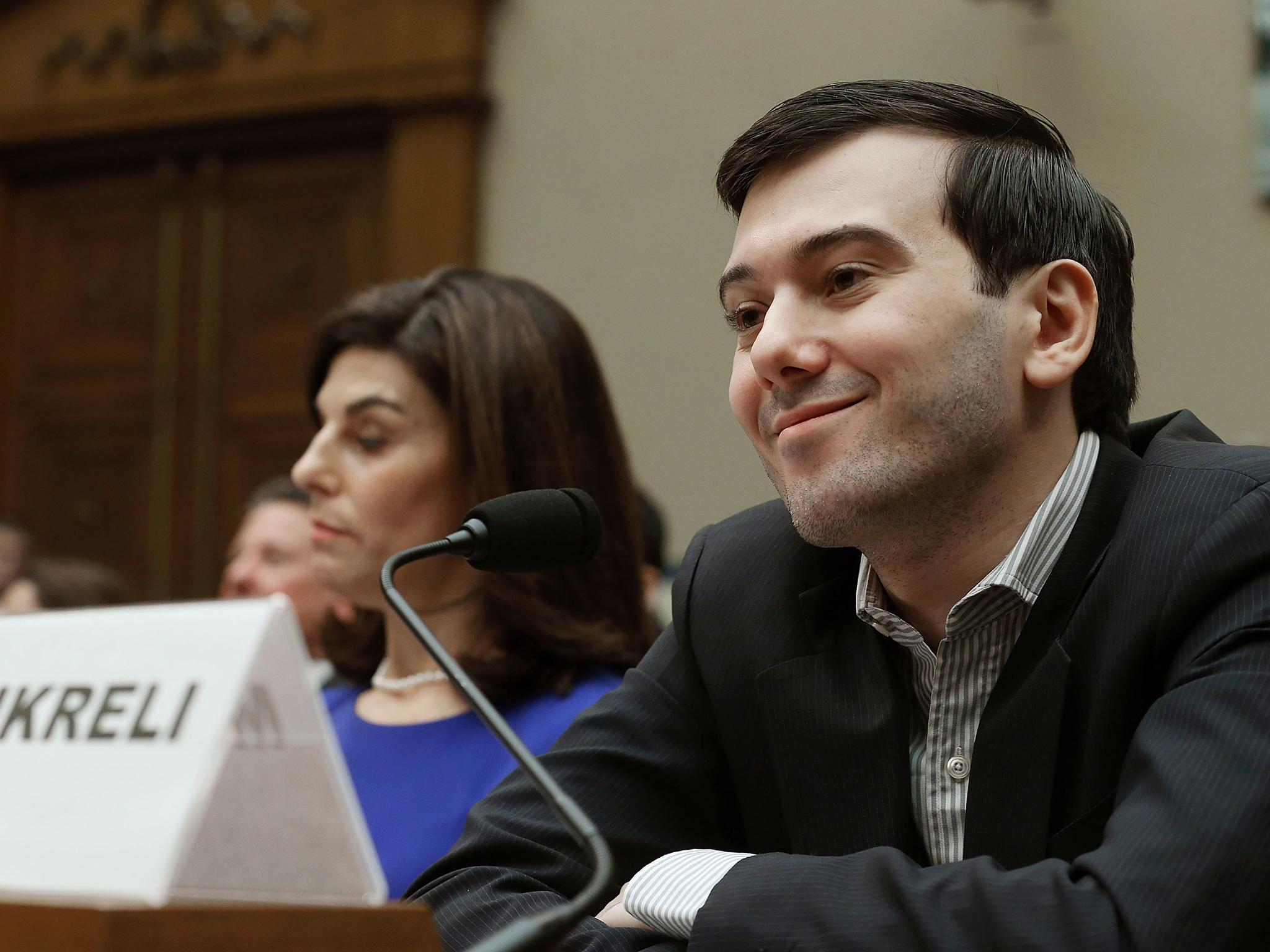If we want to avoid another Martin Shkreli or an EpiPen pricing fiasco, this is how we need to deal with pharmaceuticals in future
These drugs are out of patent. Other firms could bring generic products to market and undercut the gougers. The fact that they aren’t doing so shows that the market is not working


Who is to blame when pharmaceutical firms price gouge? The answer might seem obvious.
Many will say that responsibility lies with the greedy bosses of these companies.
Since an outfit called Mylan acquired the “EpiPen” in 2007 the price of the emergency allergy treatment has risen almost five fold. Over that period Mylan’s boss, Heather Bresch, has apparently seen her pay shoot up almost sevenfold.
In 2015 Turing Pharmaceuticals acquired the manufacturing licence for the antiparasitic drug Daraprim (taken by many HIV patients) and hiked its price from $13.5 a tablet to $750.
Martin Shkreli, Turing’s Founder, was a wealthy former hedge fund manager with a history of buying drug licences and then ruthlessly jacking up the prices.
Isn’t it the sheer avarice of these individuals that lies behind those massive price hikes that hit some of the most vulnerable?
Yet others say this gouging primarily reflects a market failure, rather than a deficiency in morality of those in the c-suite.
These drugs are out of patent. Other firms could bring generic products to market and undercut the gougers. The fact that they aren’t doing so shows that the market is not working.
And why isn’t it working? Some argue state intervention in the market is to blame. All new drugs have to be rigorously tested and their manufacturers licensed. It’s argued that this bureaucracy is deterring new entrants into these markets, allowing the gouging by incumbents to take place.
So which explanation is right? The answer is that they are all correct to some degree.
The greed is real. If the likes of Bresch and Shkreli not hiked prices to such extreme levels they could still have made a decent return on their firms’ investments.
The market failure is also real. The competition provided by a well-functioning market is the only sustainable protection for consumers from rising prices.
The obstructive role of the state is likewise real. The bureaucracy and time involved in testing and licencing really does slow down new entrants to markets in the supply of generic medicines. And new entrants face the additional commercial risk that, after going through the expensive licensing process, they may be instantly undercut and even driven out of business by the incumbent slashing its own prices. It’s not surprising that some decide not to take the risk.
Although, of course, would anyone seriously argue that public authorities should not test new drugs thoroughly? Which of us would feel safe in world where unlicensed drug companies can simply peddle whatever “medicines” they like entirely free of regulation?
It’s a deficiency in the way we discuss business and markets that we often zero in on a single explanation for an outcome, rather than accepting that they are often the product of complex and interacting forces.
Many will focus on individual greed, others will stress the lack of competition and others will concentrate their fire on sluggish state bureaucracy. But ignoring the interactions and the complexity leads to confusion on how to respond.
Speaking of confusion, when people like Hillary Clinton attack drugs price hikes on the grounds that certain medicines “can be the difference between life and death” it raises the awkward question of whether it would be acceptable for firms to price gouge with medicines that aren’t the difference between life and death but which merely reduce chronic discomfort?
This is a quagmire – but there are some basic principles that can help guide us through.
A good place to start is to recognise that pharmaceutical firms are private businesses, but ones which operate with a very particular social licence.
As private sector companies with shareholders they do have a right and a responsibility to turn a profit – and politicians and the public ought to recognise this.
Yet they often receive a major de facto public subsidy in the form of state-funded scientific research which they then pick-up and commercialise for private profit.
So it’s reasonable for politicians and society at large to object to profiteering and put public pressure on executives when there are obvious excesses in pricing.
In fact the bosses of most big pharmaceutical companies understand that the impression of profiteering brings opprobrium which is, ultimately, bad for their businesses.
Yet there will be times when unscrupulous individuals such as Shkreli enter markets and refuse to play by the rules. And larger established pharmaceutical players, such as Canada’s Valeant, have also been tempted to break ranks with aggressive price rises in recent years.
The solution under those circumstances is to use the financial power of the state to subsidise vulnerable drug buyers and ensure that powerful competitive pressures are bought to bear as swiftly as possible on the avaricious abusers of the system.
Sadly, there’s no magic policy pill that will cure pharmaceutical profiteering – only a carefully administered course of corrective treatment.
Join our commenting forum
Join thought-provoking conversations, follow other Independent readers and see their replies
Comments
Bookmark popover
Removed from bookmarks